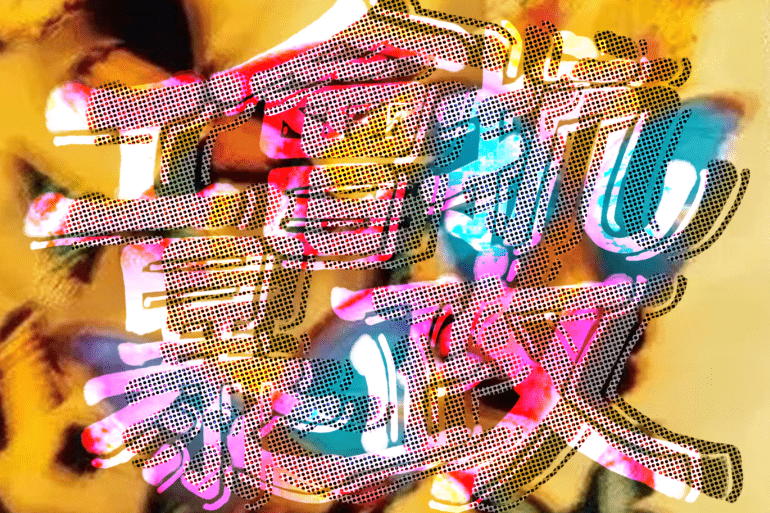Original: 【工會始終唔係靠理事、靠幹事,而係靠會員」——訪清潔服務業職工會副會長羅智偉】, published on HKCTU’s Facebook page.
Author: Ivy Hui, A CTU Cleaning Workers’ Union Officer
Translator: Promise Li
Editor’s Note: This is the fourth in our series of translations of short letters and statements from members of HKCTU that were posted on their Facebook page upon the news of their disbandment on September 17, 2021 due to increasing repression and harassment from pro-Beijing media and the Hong Kong government. We share these translations here to preserve the history of the city’s progressive and independent unionism and to honor HKCTU’s decades of organizing and struggle to better the lives of Hong Kong workers.
When I asked Chi-wai, the Cleaning Workers’ Union Vice-Chair, to do an interview, he immediately said yes and began delving into his stories with HKCTU and his union, always talking about “unionism” and “centripetal force.” After talking with him for an hour, I realized that I’m not just hearing his story, but the story of the cleaning workers’ union itself.
Law Chi-wai and the Cleaning Workers’ Union
Chi-wai first encountered HKCTU during a labor dispute at Siu Lai Estate. His wife was employed as a cleaning worker at the time, and the cleaning workers’ union was just a small branch affiliated with HKCTU then, without independently registering yet. Once that labor action ended, he joined HKCTU, and became the cleaning workers’ union’s first chair when it finally registered to become an official union in 2003. He remained in that position for 17 years, until stepping down after meeting the current chair, Wong Yau-yun.
“I didn’t know much about unionizing at the time,” Law recalls. The union formed on June 15th, which was also the International Justice Day for Cleaners and Security Guards. That day, Law and some others from the union gathered in front of an optometrist store to stand in solidarity with other cleaning workers’ action. In the years since, the union has gone and supported many other cleaning workers’ struggles: the strikes at Cheung Chau and Hoi Lai Estate, the fight for minimum wage, his own workplace at Central to fight for paid mealtimes. You could see Law at many actions, from big to small. Though Law says that when he first started he wasn’t well-versed in a lot of labor issues and discourse, he gradually learned about what “the minimum wage,” “the call to increase statutory holidays from seven to twelve days,” and “severance pay” are, and why these are basic workers’ rights to support and campaign for. What’s just and unjust, right and wrong—Law is clear about these in his heart.
Chi-wai gives me the feeling that he is a very morally upright person. I asked him why he joined the union, and he said that because he is a cleaning worker himself, and started “agreeing more [about the struggle] the more I listened in meetings.” He agreed what he should be fighting for, and so he promised to fight with us together. When I asked him what made him happiest in his years in the union, he just simply said when he’s fighting with his colleagues for better conditions. What made him most unhappy was when the union started losing workers.
Centripetal force
The labor movement’s elders whom most people know would always say that Hong Kong’s labor education is not great, and so workers don’t have the drive to join a union and so on. Law also agrees; this attitude hasn’t changed for decades. He says that workers’ “centripetal force” isn’t enough; they only tend to join and pay dues only when there’s an issue. Organizing relationships become transactional, and workers’ participation rate remains low.
Cleaning work is low-income labor par excellence—low wages, long work hours, and the cleaning workers’ union’s first demand was fighting for minimum wage legislation. As Law recalls, “HKCTU only demanded 33 HKD per hour at the time, but our union and the security guards’ union had already been asking for 35 HKD per hour.” The cleaning workers’ union had been independently affiliated, and on policy issues, its stances can differ from the HKCTU leadership. Unfortunately, the government only agreed to a 28 dollar per hour minimum wage. At the time, a cleaning worker’s monthly wage could be as low as 1000 HKD, with some workers reportedly receiving as low as 7 dollars an hour. To protect the rest of the workers, the cleaning workers’ union acquiesced to the government’s proposition for the time being.
The fight for minimum wage became the high point of the cleaning workers’ union’s organizing, gathering over a thousand new members at its height. This was not because many workers came out to fight for a higher minimum wage, but because the lack of minimum wage at the time provoked many autonomous labor struggles in different shop-floors, bringing many workers into the union. But upon the passing of the minimum wage legislation, many left or became inactive. In recent years, the cleaning workers’ union retained around a hundred or so members. Law’s response is to return to the basic essentials of human relationships: care.
To care about a fellow worker’s family life, working conditions, and health, is like caring for a friend. Even though a union is a political organization that aims to build power and fight for rights, it is still an organization composed of people. Chi-wai hopes that these small steps of care can enhance his colleagues’ centripetal force.
“The union cannot stop”
As HKCTU was discussing its disbanding in recent days, it naturally consulted Law for his thoughts on this issue. He said, “It’s not my individual decision, we should ask the other members. They have the right to propose anything no matter what their thoughts are.” To Law, the union is not just his organization. He values others’ opinions over his own. When I asked him how he cultivated his care for others and ability to listen intentionally to his co-workers, he naturally and confidently responded, “democratic practice is natural and important, it’s a basic principle of being a person.” His response was simple and straightforward, seeing these principles as rational things to grasp.
However, Law is concerned about whether the cleaning workers’ union can effectively function without HKCTU’s support. Especially since many cleaning workers don’t have much education and organizing prowess remains weak, Law worries about the future of the union. But he kept repeating—”the union cannot stop”—without elaborating too much. But one can tell from the firmness of his words and expression that he will continue to fight in the labor movement.
I asked him if he could say a few words to conclude this interview. He thought about it for a moment, and simply said “[I feel] levelheaded.” He added after a few seconds: “These are the worst of times, but we must still have hope. A union does not depend on its staff and leaders, but its members.” In this political environment, “hope” is like an empty word. But Chi-wai told me the answer—hope must depend on all our individual efforts together.
#下一次再聚 #序是一切的開始 #敍述你我與香港的故事 #職工盟 #未散 #職工盟30年 #Whenwillweback #hkctu30 #SolidarityWithHKUnions #WeLoveFreedomInHK
【「工會始終唔係靠理事、靠幹事,而係靠會員」——訪清潔服務業職工會副會長羅智偉】
文|清潔服務業職工會組織幹事 拔
訪|清潔服務業職工會副會長 羅智偉
我提出要跟智偉做訪問,他二話不說就說好,甫坐下來,他就馬上娓娓道出他與工盟、工會結緣的故事,嘴邊總是掛著「工會」、「向心力」這些詞語,跟他聊天的一小時,其實不是在聽他的故事,而是在聽清潔工會的故事。
羅智偉與清潔工會
智偉與工盟的相識始於一場曉麗苑的勞資糾紛,當時他的太太在曉麗苑任職清潔工,而清潔工會只是職工盟物管工會屬下的一個小分會,並未獨立註冊,工潮結束後,他才第一次踏足工盟,其後更在 2003 年清潔工會獨立註冊時擔任創會會長,一做就 17 年,直至去年認識現任會長黃迺元,才退下來。
「當時搞工會其實好多嘢都唔識。」清潔工會成立當日是 6 月 15 日,亦是國際清潔工公義日,成立當日智偉就與一眾工會理事到眼科醫院聲援一場清潔工的勞資糾紛行動,其後工會也聲援過多場清潔工的示威行動,長洲清潔工罷工、海麗罷工、爭取最低工資、在自己工作的中環中心爭取飯鐘錢⋯⋯很多場的大大小小的抗爭裏,都不乏智偉的身影。雖然智偉說一開始很多議題都不知道,但在工會的生活中,他漸漸認識到「最低工資」、「劃一十七日勞工假」、「遣散費」這些事,甚麼是應有的權益、應支援的行動、是與非、對與錯,有些價值在智偉的心中很清楚。
智偉給我的感覺就是一個很正直的人,問他為甚麼會加入工會,他說因為本身自己就是清潔工,開會時「聽多咗就覺得係喎」,認同甚麼是應該爭取的,就答應一起去做。問他這十幾年在工會中最開心的事是甚麼,他只簡單地答了句跟工友一起爭取的時候。最憂心的就不需要問都知道,是工會會員流失的問題。
向心力
認識的工運前輩都會說香港的工會教育做得不好,工人沒意識要加入工會 bla bla bla 下刪一萬字,這個講法講了幾十年都沒變過,智偉也相當同意,他總會說工會會員的向心力不足,每次入會都只是因為有事,有事才交會費,建立的關係就像是交會費買服務,會員的參與度也不高。
清潔是基層工種,人工低、工時長,清潔工會成立之初的訴求就是爭取最低工資的立法:「工盟當時只要求 $33 一個鐘,我哋清潔、保安工會已經嗌緊 $35 一個鐘。」工會是獨立註冊的,在政策立場上有時也會與工盟有差別,可惜最終立法時政府開出時薪 $28,當時清潔工的月薪甚至可低至 $1000 多,曾聽說過有工友的時薪可低至 $7,為了保障最基層的工友,工會最終接受 $28 袋住先方案。
最低工資的爭取成就了清潔工會的高峰,這並不是說很多工友會走出來爭取最低工資,所以會員人數暴增至過千人,而是在說因為政府當時未有最低工資的保障,引致出現不少因低工資而產生的勞資糾紛、工潮。工人因工潮入會,在成功爭取後卻沒留下,清潔工會近年的會員人數已下跌至百多人,智偉對應的方法也是回歸做人的基本——關心。
關心工友的家庭生活、勞動狀況、身體健康,就像一個朋友一樣關心對方。工會雖然是爭取權益的組織,但終究是人的組織,智偉希望這些小步都可以提升工友的向心力。
「工會唔可以停」
近日工盟正在討論應否解散的事,作為工會副會長,自然要問問他的看法,有趣的是,智偉的回答是「唔係我一個人決定,要問埋其他理事。無論佢地有咩意見,都可以提出。」對他而言,工會並不是他一個人的組織,比起他個人的意見,他更重視其他人是怎樣看。再問他到底是如何養成這種先關心別人、聆聽別人的習慣,他又很自然、理直氣壯地說:「好正常,民主文明好重要,呢個係做人嘅道理。」他的回應簡單直接,一切都理所當然似的。
不過,智偉是相當憂慮清潔工會能否在沒有工盟作為平台統籌、協調的情況下自立,基於清潔工人大部份的學歷不高,組織力也不強,加上資源等問題,他擔心工會日後的發展會何去何從,但「工會唔可以停」這句他強調了一次又一次,也沒太多的補充,只能從他鏗鏘有力的話語和堅定的眼神中,知道他將會繼續為工運走下去。
我問他,能否以一句話作結,他思量片刻,說了句:「平常心。」停頓數秒又再補充:「而家係最惡劣嘅時候,但都要有希望,工會始終唔係靠理事、靠幹事,而係靠會員。」在現在的環境下,「希望」像是一個空洞無物的詞語,但智偉告訴我們答案,終究是要靠我們每一個人。
#下一次再聚 #序是一切的開始 #敍述你我與香港的故事 #職工盟 #未散 #職工盟30年 #Whenwillweback #hkctu30 #SolidarityWithHKUnions #WeLoveFreedomInHK




